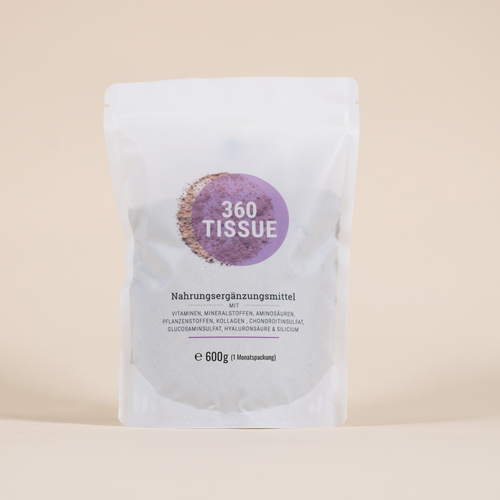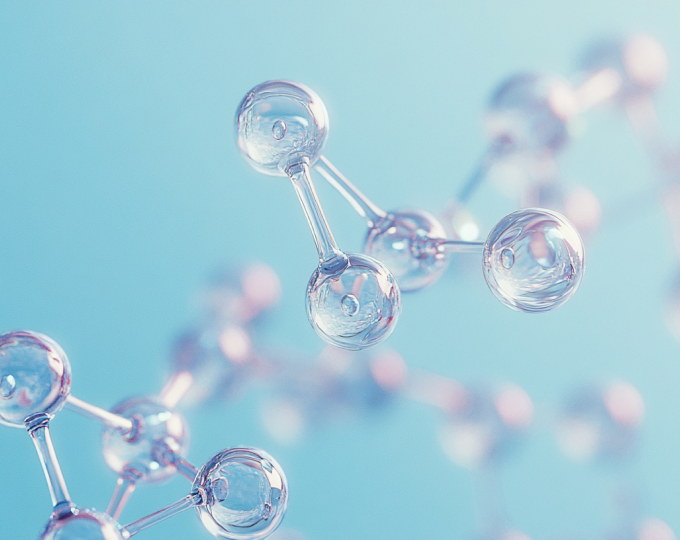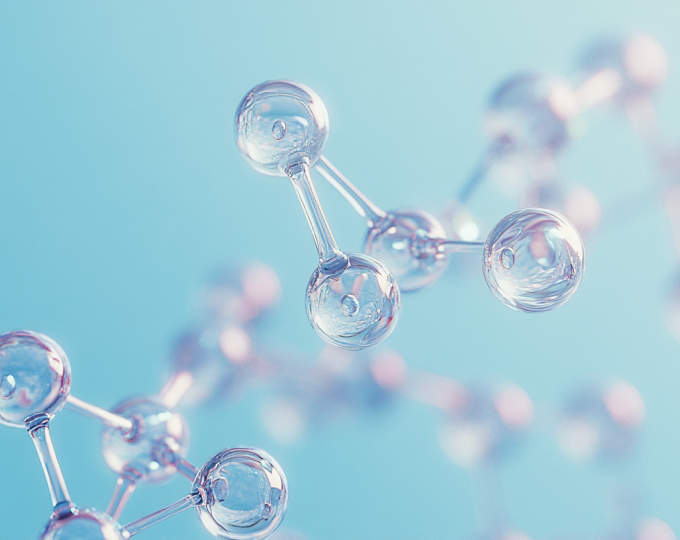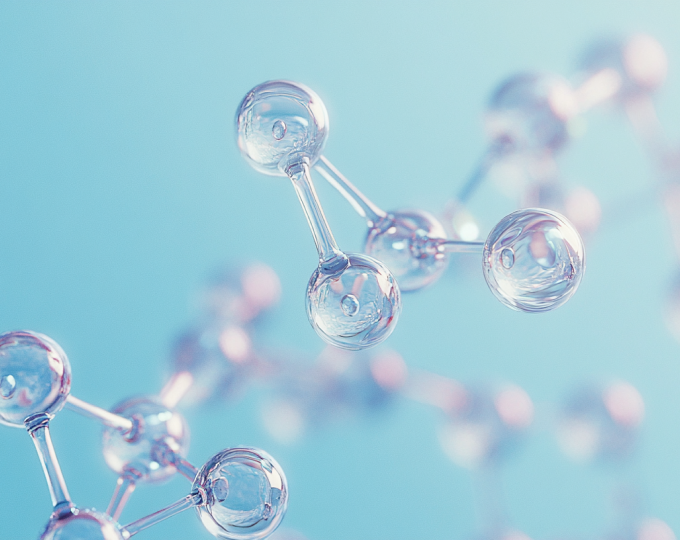Themen dieses Blogartikels:
What is Collagen?
Collagens are a group of water-soluble, fibrous structural proteins.¹ In total, collagens make up about a quarter of the total amount of protein in the human body. To date, 28 different types of collagen have been described.²
What are the functions of Collagen?
Collagen is a supportive scaffolding material and, thanks to its fibrous nature, provides strength in bones, teeth and muscles - comparable to latticework in the construction of buildings and bridges.³ Collagen is also the main component of our connective tissue, which is kept elastic by collagen fibers.⁴ Due to the different properties of the various types of collagen, the structural protein can take on other functions and, for example, provides tendons and ligaments with tear resistance and joint cartilage with resistance to pressure.⁵ Collagen is also found in the skin, fascia and blood vessels.
Advertisment
Collagen from special bovine collagen hydrolyzate, obtained from 100% certified grass-fed Argentinian cattle
Developed for optimal bioavailability & effectiveness
Protein source with high protein content (min. 91%)
Neutral taste & excellent solubility
Without any additives such as sweeteners or preservatives
Versatile use - in coffee, smoothies, muesli etc.

What makes Collagen unique?
The body can produce collagen itself from the amino acids glycine, proline and hydroxyproline.⁶ Incidentally, the term “collagen” comes from the Greek and can be translated as “glue-producing”. This is no coincidence - in the past, animal collagen was used to produce bone glue for woodworking.
How much Collagen do you need per day?
As the human body can synthesize collagen itself, it does not need to be ingested through food. There is therefore no intake recommendation from the German Nutrition Society (DGE) or other institutions.
When do you need Collagen most?
The body's own collagen production decreases with age. From the age of 40, people have already lost 10 to 20 percent of the collagen in their skin.⁷ As a result, the skin becomes saggy and wrinkled. Whether the intake of collagen in the form of dietary supplements can counteract this development has not yet been clearly scientifically proven. Some studies have shown improved skin elasticity and a reduction in wrinkles, others have not.⁸
How does a Collagen deficiency develop and how does it manifest itself?
In addition to advanced age, there are other factors that have a negative impact on the body's own collagen production, such as smoking, heavy alcohol consumption and too little sleep or exercise. The consequences of a collagen deficiency can manifest themselves in many ways: Muscles are less elastic and tendons less flexible, bones become brittle and joints cause problems.⁹ There are also various genetic diseases that are linked to defective collagen, such as a connective tissue disorder called Ehlers-Danlos syndrome or Stickler syndrome, which can lead to eye damage and hearing loss.¹⁰ Good to know: The body needs vitamin C and zinc in order to produce collagen. If these micronutrients are not present in sufficient quantities, this can lead to a collagen deficiency.
What happens if there is an overdose of Collagen?
Bislang gibt es keine Erfahrungswerte zur dauerhaften Einnahme von kollagenhaltigen Nahrungsergänzungsmitteln. Als mögliche Nebenwirkungen können ganz allgemein allergische Reaktionen auftreten¹¹ – was jedoch bei einer Überdosierung passiert, ist bisher nicht bekannt.¹²
Which foods are particularly high in Collagen?
Collagen is only found in animal foods such as meat, bone broth and gelatine. If you want to absorb collagen from fish, you have to eat the skin as well. However, it is also possible to stimulate the body's own collagen production - by eating foods that contain the “collagen building blocks” glycine, proline or hydroxyproline. These include nuts, pulses, dairy and wholegrain products as well as eggs and poultry.¹³
This dictionary entry is based on carefully researched sources:
Bibliography & Sources
- spektrum.de/lexikon/biologie/kollagen/36671
- flexikon.doccheck.com/de/Collagen
- ndr.de/ratgeber/gesundheit/Kollagen-als-Pulver-und-Kassel-Gut-fuer-Joints-and-Haut,kollagen100.html
- aok.de/pk/magazin/koerper-psyche/haut-und-allergie/kollagen-welche-funktion-es-fuer-haut-und-Joints-hat/
- flexikon.doccheck.com/de/Collagen
- ndr.de/ratgeber/gesundheit/Kollagen-als-Pulver-und-Kassel-Gut-fuer-Joints-and-Haut,kollagen100.html
- aok.de/pk/magazin/koerper-psyche/haut-und-allergie/kollagen-welche-funktion-es-fuer-haut-und-Joints-hat/
- mdr.de/ratgeber/gesundheit/kollagen-haut-produkte-gesundheitstrend-126.html
- aok.de/pk/magazin/koerper-psyche/haut-und-allergie/kollagen-welche-funktion-es-fuer-haut-und-Joints-hat/
- flexikon.doccheck.com/de/Collagen
- aok.de/pk/magazin/koerper-psyche/haut-und-allergie/kollagen-welche-funktion-es-fuer-haut-und-Joints-hat/
- ndr.de/ratgeber/gesundheit/Kollagen-als-Pulver-und-Kassel-Gut-fuer-Joints-and-Haut,kollagen100.html
- aok.de/pk/magazin/koerper-psyche/haut-und-allergie/kollagen-welche-funktion-es-fuer-haut-und-Joints-hat/

















